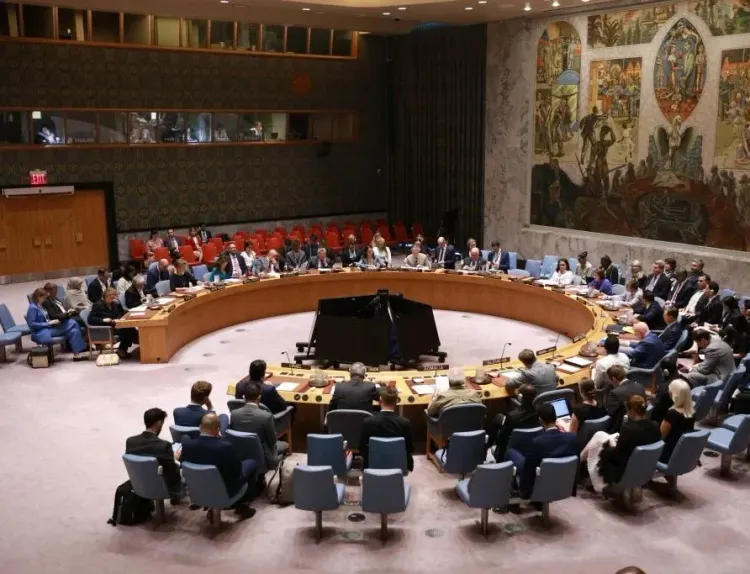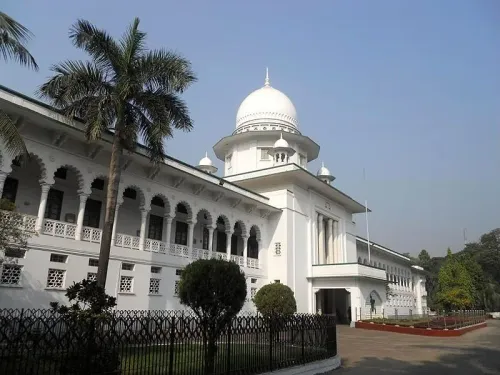Should Diplomacy Prevail to Ensure the Peaceful Nature of Iran's Nuclear Program?

Synopsis
Key Takeaways
- UN highlights need for diplomacy to address Iran's nuclear program.
- Resolution 2231 aims to support the 2015 nuclear deal.
- Challenges include the U.S. withdrawal and regional tensions.
- Ceasefire agreement offers a path to peace.
- Dialogue remains crucial for stability in the region.
United Nations, June 25 (NationPress) UN Undersecretary-General for Political Affairs, Rosemary DiCarlo, emphasized the need for diplomacy and dialogue to guarantee that Iran's nuclear program remains peaceful. In her briefing to the Security Council, she highlighted the challenges surrounding the implementation of Resolution 2231, which supports the 2015 nuclear deal involving Iran and six global powers: Britain, China, France, Germany, Russia, and the United States. DiCarlo expressed concern that with less than four months until the expiration of its provisions, the goals of the resolution and the nuclear deal have not yet been fully achieved, according to Xinhua.
The nuclear accord, established in the summer of 2015 to ensure that Iran's nuclear activities remain strictly peaceful, has encountered numerous hurdles, notably the U.S. withdrawal from the agreement in 2018 during Donald Trump's presidency, DiCarlo noted. In recent months, participants of the deal, officially known as the Joint Comprehensive Plan of Action (JCPOA), have intensified their efforts to find a path toward complete implementation of the agreement. Furthermore, Iran and the United States have engaged in five rounds of bilateral discussions, facilitated by Oman, but DiCarlo lamented that these efforts have not yet yielded a resolution ensuring the peaceful nature of Iran's nuclear program.
The recent military tensions between Israel and Iran since June 13, coupled with U.S. airstrikes on Iran's nuclear sites, have complicated the prospects for achieving complete adherence to Resolution 2231. Following Iran's missile strikes on a U.S. military base in Qatar, the situation in the region has become even more precarious, she said.
The announcement of a ceasefire agreement between Israel and Iran, coordinated by the United States and Qatar, is a notable achievement that may help de-escalate tensions in the region, DiCarlo stated.
At the core of this conflict lies the nature of Iran's nuclear program. After the recent violent confrontations, this ceasefire presents a crucial opportunity to avert catastrophic escalation and strive for a peaceful resolution to the Iran nuclear dilemma. DiCarlo affirmed, “Diplomacy, dialogue, and verification remain the optimal approach to ensure the exclusively peaceful nature of Iran’s nuclear program and to deliver tangible economic benefits to the Iranian populace.”
The United Nations is prepared to support all initiatives that promote peace, dialogue, and stability in the region, she concluded.









